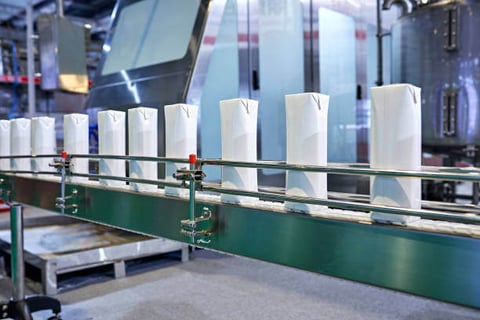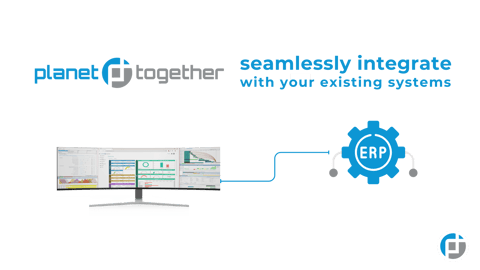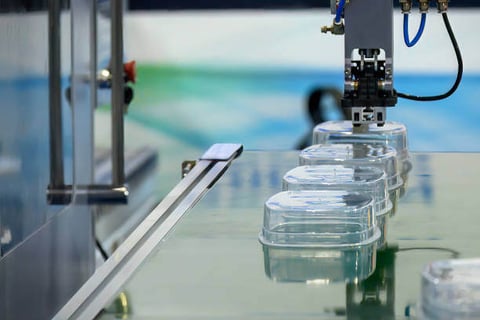Flexible and Modular Packaging: IT Strategies to Scale Innovation with APS and ERP/MES Integration
In Packaging and Containers Manufacturing, flexibility isn’t just a nice-to-have — it’s a business imperative. Consumer preferences are shifting faster than ever, driven by e-commerce, sustainability pressures, and a desire for personalization. Manufacturers that can rapidly pivot their packaging lines to deliver customized, sustainable, and modular solutions gain a distinct competitive advantage. But behind this capability lies a complex web of systems, processes, and technologies — and it's the Manufacturing IT Manager's role to bring it all together.
Enter flexible and modular packaging, a concept gaining serious momentum. It refers to packaging systems that are adaptable in form, function, and production. Yet, achieving this level of agility demands more than just smart equipment — it requires a robust digital infrastructure where Advanced Planning and Scheduling (APS) tools like PlanetTogether, integrated with ERP or MES platforms such as SAP, Oracle, Microsoft Dynamics, Kinaxis, or Aveva, serve as the digital backbone.
In this blog, we’ll explore how flexible and modular packaging is transforming operations and how manufacturing IT leaders can drive this shift by enabling seamless integration across planning and production systems.
The Rise of Flexible and Modular Packaging
Traditional packaging lines were designed for long runs, limited variation, and predictable demand. That model no longer aligns with today’s market realities. From seasonal promotions to SKU proliferation and personalized packaging, packaging manufacturers are now expected to deliver diverse products quickly and cost-effectively.
Flexible packaging allows businesses to shift quickly between materials, shapes, and sizes — ideal for short runs and changing customer demands. Meanwhile, modular packaging introduces components that can be reused, reconfigured, or customized, aligning with sustainability and circular economy goals.
Together, they offer manufacturers:
Faster time-to-market
Reduced waste and material usage
Greater customer satisfaction
Improved inventory control
But with this increased flexibility comes greater complexity — in scheduling, materials management, workforce coordination, and asset utilization.

The IT Challenge: Orchestrating Complexity in Real Time
As a Manufacturing IT Manager, your mission is to build a resilient digital infrastructure that ensures operations keep pace with commercial agility. But enabling flexible and modular packaging introduces several IT challenges:
Real-time visibility into production constraints and inventory
Accurate forecasting and planning despite rapid SKU changes
Seamless integration between shop floor equipment and enterprise systems
Balancing operational efficiency with custom order responsiveness
Solving these challenges requires more than a patchwork of disconnected systems — it demands a harmonized, data-driven approach to production planning and scheduling.

Why PlanetTogether APS Is Critical to Supporting Packaging Flexibility
PlanetTogether Advanced Planning and Scheduling (APS) software was designed for exactly this kind of dynamic environment. It enables packaging manufacturers to plan, sequence, and optimize production schedules across multiple lines, plants, and shifts — with real-time responsiveness.
Some of the core benefits include:
Dynamic scheduling for short-run, high-mix production
Optimization of machine setup times for different packaging types
Load balancing across multiple resources and facilities
Scenario planning to adapt quickly to new order requests
Visual dashboards and KPIs to monitor performance
When combined with flexible and modular packaging, PlanetTogether becomes a force multiplier — transforming flexibility into profitability.

The Power of Integration: APS + ERP/MES Platforms
While PlanetTogether provides powerful scheduling capabilities, its true value is unleashed when it’s integrated with your existing ERP or MES platforms like SAP, Oracle, Microsoft Dynamics, Kinaxis, or Aveva. Here's how:
SAP Integration
SAP is the backbone of many packaging manufacturers, managing everything from materials and orders to financials. Integrating SAP with PlanetTogether allows:
Automated import of sales orders and demand forecasts
Real-time material availability updates
Synchronization of production schedules with procurement and logistics
Visibility into the true cost-to-produce modular packages
This tight integration reduces manual effort, eliminates planning silos, and ensures that your packaging plans are grounded in real-time business data.
Oracle Integration
For Oracle-based operations, integration with PlanetTogether APS ensures:
Cross-functional alignment between supply chain, manufacturing, and customer service
Streamlined work order execution and change management
Accurate capacity planning across modular packaging workflows
This is particularly important for facilities managing diverse customer requirements and global supply chains.
Microsoft Dynamics Integration
Microsoft Dynamics offers agility and usability, and when integrated with PlanetTogether, it enables:
Cloud-native synchronization of master data and production feedback
Automated decision support for line changeovers and short runs
Improved planning visibility for modular packaging configurations
This integration is ideal for mid-sized packaging manufacturers scaling up their operations.
Kinaxis Integration
With Kinaxis, known for real-time supply chain orchestration, integrating with PlanetTogether enhances:
End-to-end visibility from supplier to production
Agile response to supply chain disruptions impacting modular component availability
Synchronized scenario planning across supply and production
This pairing is critical for managing complex packaging supply networks with just-in-time constraints.
Aveva Integration
Aveva, a leader in industrial automation and MES, provides rich shop-floor data. Integrating this with PlanetTogether enables:
Real-time feedback loops between shop floor and scheduling
Enhanced OEE monitoring for modular packaging lines
Automated alerts for delays or quality issues impacting packaging configurations
This enables Manufacturing IT Managers to maintain control and transparency, even in highly automated environments.
Key Implementation Tips for IT Managers
If your facility is moving toward flexible and modular packaging — or already deep in the transition — here are some best practices to guide your IT strategy:
Start with a pilot line
Choose one high-mix packaging line and integrate PlanetTogether with your ERP/MES to validate data flows, scheduling logic, and performance improvements.
Map master data dependencies
Ensure your BOMs, routings, and inventory classifications support flexible packaging components and setups.
Build a real-time data bridge
Use APIs or middleware to create bi-directional data exchange between PlanetTogether and platforms like SAP or Aveva.
Embrace modular architecture
Adopt IT systems that are modular and API-friendly themselves — so they align with the same principles as your packaging strategy.
Collaborate cross-functionally
Include operations, supply chain, and planning stakeholders in the integration roadmap to ensure alignment with business goals.
The Competitive Advantage of IT-Enabled Flexibility
Ultimately, flexible and modular packaging is not just a production strategy — it’s a business enabler. It allows you to:
Support sustainability initiatives through material efficiency and reusability
Reduce lead times for custom orders
Respond to evolving market trends with agility
Minimize downtime from frequent product changeovers
As a Manufacturing IT Manager, your role is pivotal. By leveraging APS tools like PlanetTogether and integrating them with your existing ERP and MES systems, you're not just solving today’s scheduling challenges — you’re laying the groundwork for a more intelligent, resilient, and customer-centric packaging operation.
Flexible and modular packaging is the future of Packaging and Containers Manufacturing — but it’s not achievable without a smart, scalable digital infrastructure. With PlanetTogether APS at the core, integrated tightly with platforms like SAP, Oracle, Microsoft Dynamics, Kinaxis, and Aveva, IT teams can deliver the agility and precision needed to thrive.
For forward-thinking IT leaders, this isn’t just a trend — it’s a strategic transformation. And it starts with choosing the right tools and making them work seamlessly together.
Are you ready to take your manufacturing operations to the next level? Contact us today to learn more about how PlanetTogether can help you achieve your goals and drive success in your industry.
Topics: PlanetTogether Software, Integrating PlanetTogether, Dynamic Scheduling, Packaging Manufacturing, Optimization of Machine Setup Times, Load Balancing Across Multiple Resources, Custom Order Responsiveness





















LEAVE A COMMENT